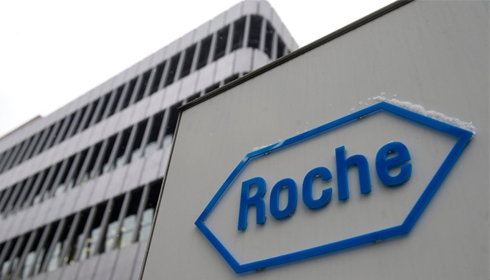
Roche Set to Launch Accu-Chek Smartguide CGM in Europe Amid Growing Competition
Basel-based Roche, a global leader in diagnostics and pharmaceuticals, is preparing to launch its first continuous glucose monitor (CGM) in Europe, hoping to acquire a foothold in an increasingly competitive field. Roche's international business head for continuous monitoring, Sérgio Moreiras, revealed recently at the European Association for the Study of Diabetes meeting in Madrid that the company's Accu-Chek Smartguide would be available in the coming weeks.
Anyone aged 18 and above with Type 1 or 2 diabetes can use the Accu-Chek Smartguide, which received a CE mark in July. Roche intends to initially launch the gadget in the Netherlands, Switzerland, and Germany.
According to media reports, Roche's move to enter the CGM market comes at a time when two other industry titans, Abbott and Dexcom, dominate the area. Both firms provide well-established CGMs that have considerable market penetration. However, Roche is pitching the Accu-Chek Smartguide as a differentiator thanks to its predictive algorithms, which forecast the possibility of low blood sugar incidents over various time frames.
The Accu-Chek Smartguide can forecast hypoglycemia in the following 30 minutes, two hours, and overnight, which Roche thinks will set it apart. However, unlike newer CGMs, the Smartguide requires an initial calibration with a finger stick, which may be a disadvantage for customers who prefer a completely non-invasive experience.
Moreiras emphasised that hypoglycemia remains a major worry for diabetics. He provided figures indicating that those with type 2 diabetes have an average of 23 hypoglycemic incidents per year, while more than 40% of those with type 1 diabetes experience nighttime hypoglycemia. "It was clear that the fear of hypoglycemia was something we had to think about as we worked on our answer," Moreiras told me.
Pau Herrero, Roche's senior technologist for algorithms and decision support, emphasised the advanced machine learning models employed in the Accu-Chek Smartguide. The models are based on patient data over multiple days, with a predicted accuracy of 95% sensitivity and 99% precision in detecting low glucose episodes within a 30-minute timeframe. This specificity, especially for nocturnal lows, constitutes a significant breakthrough. During the studies, Roche's algorithms accurately detected 77% of overnight hypoglycemia incidents.
However, the device confronts competition in terms of both functionality and accuracy. In a study by Roche of 48 people, the Accu-Chek Smartguide had a mean absolute relative difference (MARD) of 9.2%. This meant that there was a delay between the CGM readings and the capillary blood glucose measurements. This is greater than Dexcom's G7 CGM (8.2%) and Abbott's Freestyle Libre 3 (7.8%), both of which have proven themselves as more accurate options.
While Roche is now focussing on European markets, Moreiras hinted at plans to introduce the Accu-Chek Smartguide in the United States. He stated that the company is in "active discussions" with the Food and Drug Administration (FDA), but did not specify a particular date for a possible U.S. launch.
In addition to expanding geographical availability, Roche is trying to improve the device's functioning. Roche plans to incorporate more algorithms and establish connections with its MySugr app in future improvements. On the hardware front, the company is investigating the creation of next-generation sensors.
As Roche joins the CGM industry, its ability to distinguish itself from more established competitors such as Dexcom and Abbott will become important. How effectively the Accu-Chek Smartguide meets user expectations for prediction accuracy, convenience of use, and overall glucose management—particularly in managing the dread of hypoglycemia—will undoubtedly determine the product's success.